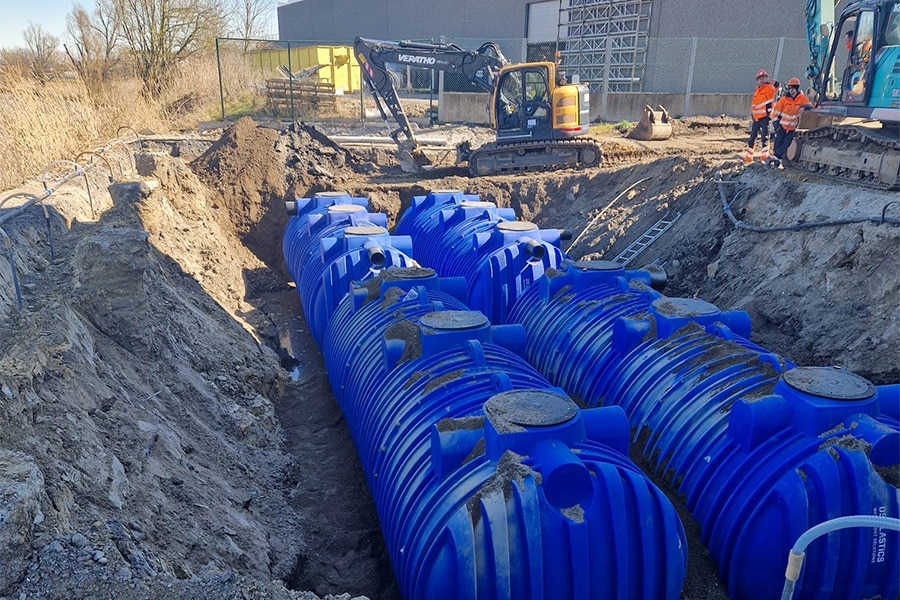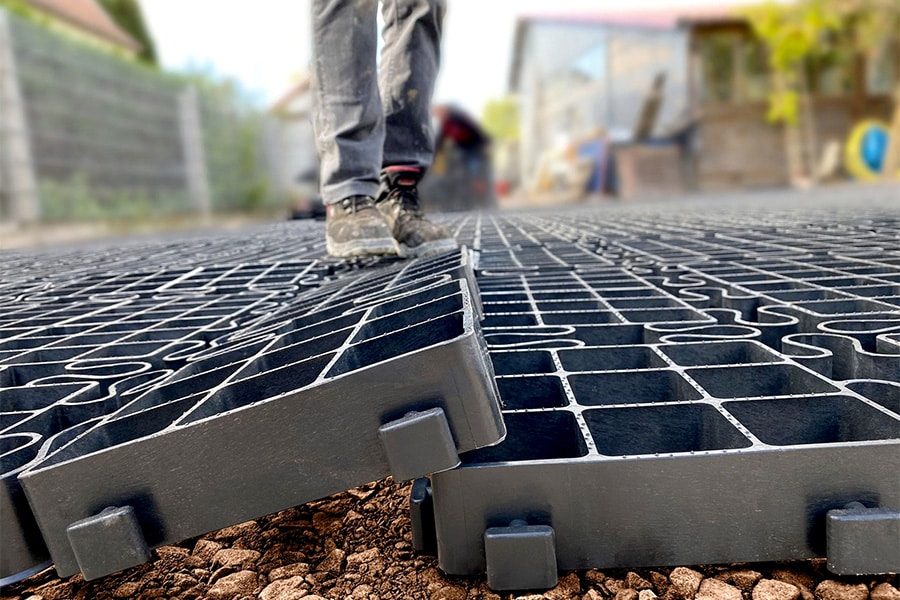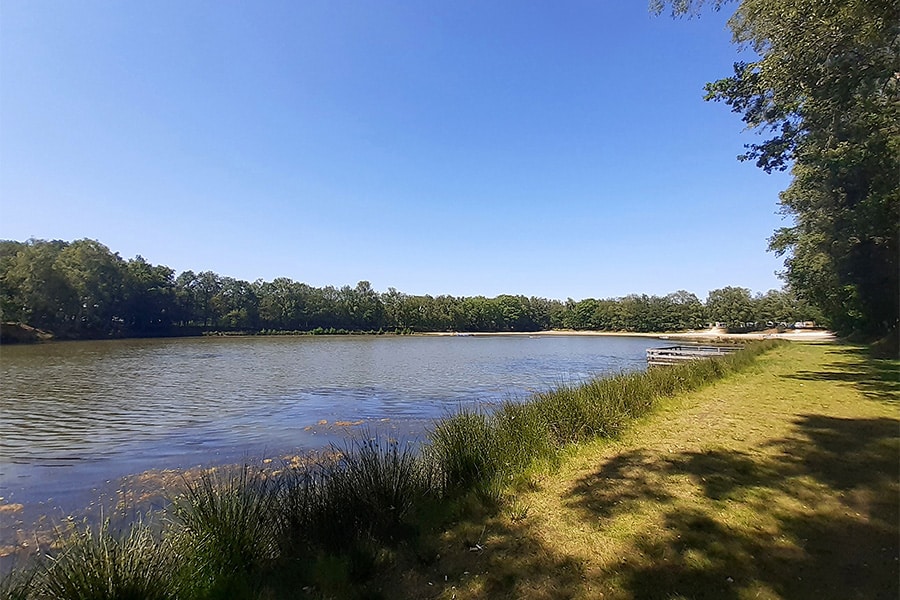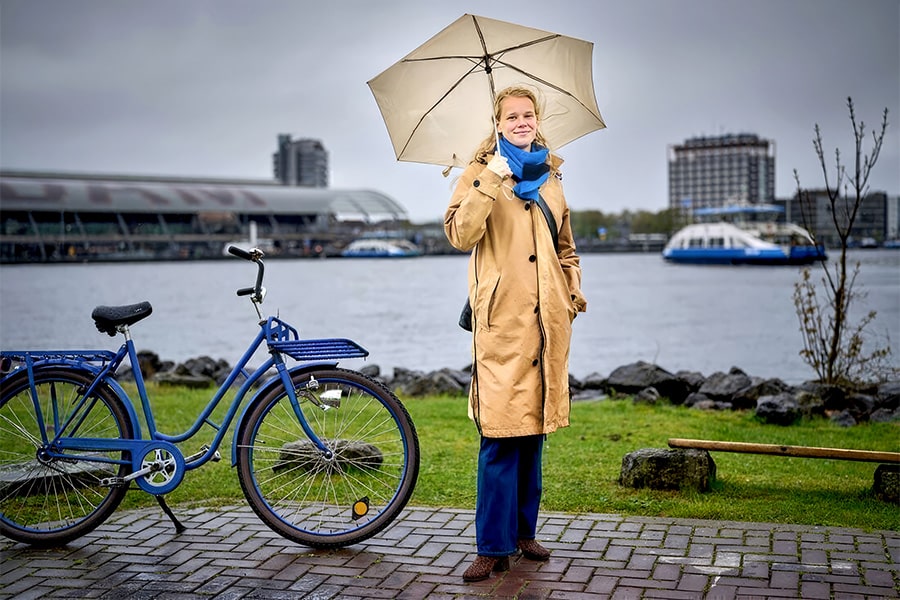
Femke Zevenbergen, director of projects at Boskalis Netherlands and president of the Association of Hydraulic Engineers
The construction and infrastructure industry is primarily a man's world. But if you look carefully, you will come across women as well. On this page we offer them a stage. To read what motivates them, how they do their work and especially what it is like to work as a woman in a predominantly male world. In this edition we give the floor to Femke Zevenbergen, Director of Projects at Boskalis Netherlands and earlier this year appointed president of the Association of Hydraulic Engineers.
Femke has been with Boskalis for almost eleven years now. "In the civil engineering world, I did feel like a somewhat 'odd duck' at first," she begins. "After all, I am originally a lawyer and graduated in Construction Law. That's where my fascination with the construction industry originated. After my studies, I worked as a corporate lawyer for ten years and faced and dealt with a lot of proceedings and claims. Soon I was convinced that settling the dispute is not the heart of the matter, but that something goes thoroughly wrong on the front end. That made me very curious about what exactly happens in a setting that leads to the parties not being able to find each other."
After working as a corporate lawyer for ten years, including two years at Boskalis, Femke felt it was time for a new step in 2015. "My affinity for technology has always remained. I enjoy nothing more than sparring with (technical) colleagues to get to the heart of problems together. This has led me through various positions over the past ten years, from tender manager and project manager to head of our Linq business office, and since January 2023 I have been Director of Projects in the Rivers and Dikes business line. A common thread throughout my career is my highly developed empathy for others. What moves someone else? Only then do you arrive at real solutions, both within your own organization and for a client's problem."
Boskalis distinguishes itself by not thinking in boxes or functions, Femke indicates. It looks at the person and his or her individual talents. "I have been given every opportunity to develop myself. I notice that I am an example for others, both within the hydraulic engineering sector and within our company. As an internal coach, I share my story and help colleagues to be able to be themselves in this predominantly male and technical world." Femke emphasizes that the male-female ratio is improving, especially in trainee groups.
Some women sometimes say "I'm one of the guys. I certainly am not, Femke states firmly, "I just feel 'one of them,' a valued colleague." She values diversity in teams, not only in terms of gender, but also in terms of age. "The curiosity and open-mindedness of young people combined with experience often proves to be a formula for success." She emphasizes that social safety is a focal point for promoting diversity. "If you give social safety attention, diversity in teams naturally grows."
Since June of this year, Femke has been appointed president of the Association of Hydraulic Engineers. "I knew I could be one of the candidates and applied myself. Mainly because of my intrinsic drive to help the hydraulic engineering sector further into the future. The sector can be quite modest, whereas if you see the preconditions we create to be able to live in the Dutch delta, then that should be a bit more visible. Quite apart from the fact that we are faced with a major future hydraulic engineering task. As chairman, I want to bring the pride and expertise present in the sector more into the limelight. In whatever role, it's about what I can contribute, not about the title I bear."
With determination, Femke strives for lasting impact and progress, both personally and for the sector as a whole. "This is how we show the Netherlands the importance of the hydraulic engineering sector, and that we want to remain an attractive, healthy and young sector in the future."



